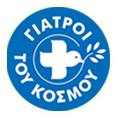Dear European Leaders:
As organisations working directly with refugees and migrants in Europe, we ask European Union Member States present at the European Council meeting of 17th and 18th March 2016 to take the opportunity to come together in solidarity and conclude bold, unified and decisive policies to address the humanitarian crisis.
A response to the humanitarian crisis in Europe must build on the work of last year and squarely address the current, clear gaps in policy, whilst fully respecting the law and spirit of the EU’s own legislation and the 1951 Refugee Convention.
2015 proved to bring difficult challenges for all working on the ground; Member State authorities, humanitarian agencies, non-governmental organizations, local populations and volunteers. It also provided us with some tremendous lessons to be learnt.
One such lesson has been that an approach to migration based on containment costs lives. Since 2014, 7493[1] people have lost their lives at sea, a large proportion of which have been children. Border blocks coupled with no legal routes of entry force people to turn to smugglers to seek refuge in the EU on increasingly dangerous routes. Unilateral, arbitrary border closures worsen the humanitarian crisis. Such closures undertaken in the last weeks have forced tens of thousands of people into confined areas often without access to the absolute basic needs: shelter, food, health care and water. This confinement also creates enormous difficulties for the humanitarian organisations to reach areas quickly and provide adequate supplies and protection services.
The decisions taken by the European Council on 7 March 2016 have perpetuated the confinement of people and discriminatory practices. Border management is essential but must be separated from the inadvisable and unattainable goal of reducing migration to zero. Border closures, coupled with a stark lack of legal routes, are not the answer to managing the arrival of refugees and migrants in Europe. People, not borders, are in urgent need of protection.
